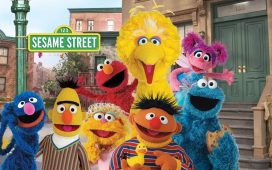While the deadly spread of coronavirus is affecting many business and employees, please spare a thought for the reality stars who may also stand to lose thousands from their sponsored posts being halted.
What with not being able to fly to tropical locations, flog their nightclub attire, or ‘gram their brunch, as the country goes into lockdown and travelling is a big no-no amid Covid-19, that’s a large chunk of their earnings gone.
With many making money from clothing brands and TV appearances, after finding fame on reality programmes, that sort of salary-stream will suffer immensely.
For instance, many Love Islanders often come straight from the villa and sign deals with various brands for hundreds of thousands of pounds – sometimes rumoured to be with 1million.
Those money-makers may be under threat now.
Those that make prime dosh from collaborating with companies and posting products to Twitter and Instagram will definitely be feeling the pinch, with PR expert and founder of Boxed Out PR Hayley Smith estimating reality TV influencers could see their earnings drop from anywhere between £50,000-£250,000 due to the debilitating state of business around the world.
‘Not only are they unable to capitalise on their brand, by going out and visiting places, or attending events or appearances, the brands they are working with will be less likely to invest in influencer marketing during this financial uncertainty,’ Smith explains to Metro.co.uk. ‘Also, with the future of ecommerce uncertain as people strive to save money, and a potential lock down on deliveries, influencers are likely to become redundant within the marketing funnel as the quantifiable ROI [return on investment] is removed.’
Reality stars can charge big money per sponsored post, with influencers also earning megabucks – such as YouTube Zoe Sugg who reportedly pockets £12k per ad post.
Essentially, if the public aren’t spending money, marketers can’t measure the potential – and it’s hardly a time businesses are going by the ‘risk it for the biscuit’ mentality.
But it’s not all doom and gloom.
For those who made some iron clad business deals and hold contracts, that’ll add security and regularity to their income. While online platforms like YouTube and TikTok are only bound to see an influx of stars turning to new money avenues as we all bunker down and self-isolate.
Be honest, how many celebrities have you seen create TikTok accounts the past week? And you only have to see the abundance of Instagram Live ‘shows’ and workouts going down online to know the stars are already changing tack.
What does self-isolation mean?
Self-isolation means staying indoors and avoiding all contact with other people for 14 days, according to the NHS.
It means no going to work, school, the shops or even to the park for some fresh air, in order to minimise the risk of passing on Covid-19.
Public transport and taxis are a no-no and you shouldn’t have visitors over, even if you just stay at home.
Anyone in self-isolation is advised to ask friends, family and delivery drivers to pick things up for you and drop them-off. You should put a sign outside telling people you are self-isolating and everything should be left on the floor outside your front door to avoid the risk of further infections.
Those who are self-isolating are still advised to stay away from their pets as much as possible and to wash their hands before and after touching them.
If you live in a house share and have to self-isolate, the advice is to stay in your room with the door closed and only emerge to use communal kitchens, bathrooms and living areas if absolutely necessary.
Who should self-isolate?
The government advises anyone returning from Category 1 areas (Hubei, Iran, Italy and Daegu or Cheongdo in South Korea), to go straight home and self-isolate, even if they don’t display any symptoms.
Travellers should use the 111 online coronavirus service to find out what to do next.
Anyone returning from Category 2 areas should self-isolate and call 111 if they have Covid-19 symptoms. You can find the list of those places here.
‘Though they may not be able to go anywhere, they can still create content and reach out to their fans,’ Smith adds. ‘With everyone self-isolating, everyone will be online constantly and will be looking for new content, and influencers would be silly not to tap into this.’
She continues: ‘Things such as makeup tutorials, exercise videos, pet posts, new hobbies and honest content will help keep fans on side and connected. It may feel very limited, but it isn’t just the ‘now’ they need to think about.
‘Building their profiles, tapping into new audiences, and creating strong, engaging and new content will put them in a great position for paid content and collaborations once things start getting back to normal.
‘Now is not the time for them to ignore their platforms or audience if they want to continue getting paid work.’
And, hey, who are we kidding? We’re still jealous of that earning power.
Got a story?
If you’ve got a celebrity story, video or pictures get in touch with the Metro.co.uk entertainment team by emailing us celebtips@metro.co.uk, calling 020 3615 2145 or by visiting our Submit Stuff page – we’d love to hear from you.
MORE: Gavin And Stacey is returning to BBC One on Saturday nights in coronavirus quarantine lockdown
MORE: Cristiano Ronaldo has no days off the gym even in the midst of coronavirus lockdown

















